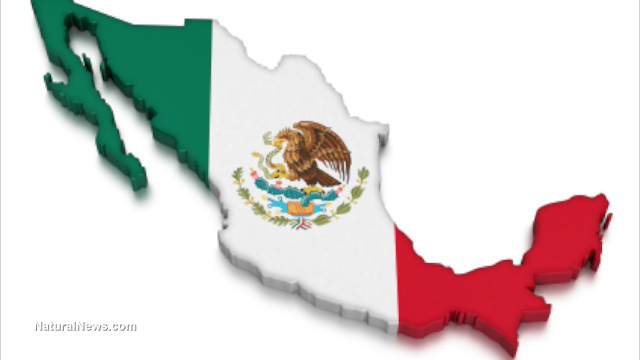Mexico bans Monsanto from planting GMO soybeans
by J. D. Heyes
(NaturalNews) A Mexican judge in a federal district court in Yucatan state has recently overturned a permit issued to Monsanto, the America-based multinational mega-ag giant corporation that has long been the leading developer and supplier of genetically modified (GM) crops.
Devon G. Pena, writing for Environmental and Food Justice, said that the permit, which was issued by the Mexican Secretariat of Agriculture, Livestock, Rural Development, Fisheries and Food on June 6, 2012, "allowed the commercial planting of GM soy bean in Yucatan."
The recent court reversal was based on consideration of scientific evidence that demonstrated (to the satisfaction of the judge) that GM soy crop plantings are a threat to Mexican honey production in the states of Yucatan, Campeche and Quintana Roo.
As reported by Pena:
An op-ed piece appearing in [a recent issue of] La Jornada (July 23), applauded the decision with insightful commentary suggesting that the federal agencies involved in this dispute are guilty of corruption and collusion with the transnational Gene Giant.
'The court is agreeing with scientists, farmers'
According to the paper, the permits that were revoked by court order, had been issued by SAGARPA, which is Mexico's agriculture ministry, as well as SEMARNAT, which is Mexico's environmental protection agency, despite longstanding objections by the country's own top environmental institutions -- the Mexican National Commission for the Knowledge and Use of Biodiversity, National Commission of Natural Protected Areas, and the National Institute of Ecology.
As Pena reported earlier this year, on March 16, the federal permit approval also came despite objections from several hundred scientific research scholars who are associated with Mexico's Union of Concerned Scientists Committed to Society. Reporting further, the Pena said that, at the very heart of the Mexican court ruling is an all-important conclusion that co-existence of GMOs and other living things is not really possible:
The court is in effect agreeing with scientists, farmers, beekeepers, and indigenous communities that Monsanto GM soy and honey production are incompatible.
According to La Jornada, the scientific concerns are complemented by economic factors: "[T]he aforementioned permit runs the severe risk of undermining the marketing of honey produced in these states and destined for the European market."
Data cited in the ruling noted that 85 percent of Mexican honey is exported to European Union (EU) markets, and the Court of Justice of the EU already prohibits (as of 2011) the sale of honey containing pollen from GM crops.
'Setback for Mexican agencies'
The editorial in La Jornada further said, according to Pena, "Taken together, these elements make this judicial determination of particular importance: This is a setback to the major transnational corporation involved with the production and marketing of genetically modified foods, whose presence in our country has grown in recent years, and is an extremely valuable victory for peasant farmer, indigenous, environmental, and scientific organizations that are opposed to these crops because they constitute a risk factor for the health and nutrition of populations and biodiversity."
The court's ruling is a setback for Mexican federal agencies that continue to exhibit "clearly inappropriate and irresponsible" attitudes that border on complicity with multinational corporate interests and against national interests in Mexico, Pena said, adding that the government of Mexico -- though a signatory to the Convention on Biological Diversity and the Cartagena Biosafety Protocols -- has not taken the responsible approach being followed across much of Europe.
Rather, the Mexican government is failing to respect its various treaty obligations as its agriculture and environmental protection ministries bypass guarantees "owed native communities -- such as the right to be consulted on operations of individuals that affect their territories, and leaving them to their fate in legal battles against... powerful multinationals," the op-ed said.
It wasn't clear if Monsanto planned to appeal the ruling.
Sources:
http://www.cornucopia.org
http://www.jornada.unam.mx
http://www.naturalnews.com
http://ejfood.blogspot.com



No comments:
Post a Comment